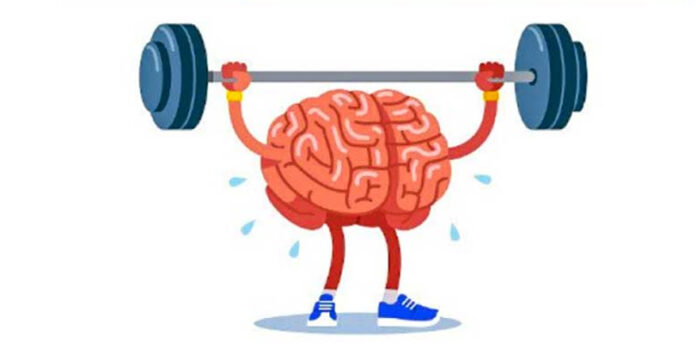We believe that taking care of your mental health is just as important as nurturing your physical well-being. In this fast-paced world, it’s crucial to prioritize your mental health and seek out exercises that can promote clarity, positivity, and emotional well-being. That’s why we’ve curated a list of eight amazing exercises that can do wonders for your mental health.
These exercises go beyond the traditional notions of physical fitness and delve into the realm of mind-body connection. From mindfulness practices to creative outlets, each exercise is designed to strengthen your mental resilience and bring you closer to a state of balance and tranquility. Whether you’re dealing with stress or anxiety, or simply want to enhance your overall mental wellness, these exercises offer practical techniques that you can implement today.
Join us on this journey as we explore these incredible exercises, backed by research and personal testimonials. Discover how simple yet powerful activities can transform your mindset and improve your mental health. Get ready to embrace a new perspective and embark on a path of self-care, as we present to you eight amazing exercises for your mental health.
Exercises To Improve Mental Health

Engage in mindfulness meditation to cultivate present-moment awareness and reduce stress. Set aside a few minutes each day to focus on your breath and observe your thoughts without judgment. This practice can enhance self-awareness, promote relaxation, and improve overall mental well-being.
Gratitude Journaling
Dedicate a few moments each day to write down things you’re grateful for. Expressing gratitude can shift your mindset towards positivity, increase happiness levels, and reduce anxiety. Reflecting on the good things in your life can help you gain perspective and foster a sense of contentment.
Physical Exercise
Engaging in regular physical exercise not only benefits your physical health but also has a profound impact on your mental well-being. Exercise releases endorphins, the body’s natural mood elevators, and helps reduce symptoms of depression and anxiety. Find an activity you enjoy, whether it’s jogging, dancing, or yoga, and make it a part of your routine.
Creative Outlets
Engaging in creative activities like painting, writing, or playing an instrument can provide a therapeutic outlet for your emotions. Channeling your thoughts and feelings into artistic expression can reduce stress, increase self-esteem, and foster a sense of accomplishment.
Social Connections
Building and nurturing social connections is vital for mental health. Spend quality time with loved ones, join clubs or groups with shared interests, or participate in community events. Connecting with others promotes a sense of belonging and support, reducing feelings of isolation and improving overall mental well-being.
Cognitive Stimulation
Keep your mind active and engaged through puzzles, brain teasers, or learning new skills. Mental stimulation helps improve cognitive function, memory, and problem-solving abilities. Engaging in intellectually stimulating activities can also boost self-confidence and provide a sense of achievement.
Deep Breathing Exercises
Deep breathing exercises can help calm your mind and alleviate stress. Practice diaphragmatic breathing, inhaling deeply through your nose and exhaling slowly through your mouth. This technique activates the body’s relaxation response, reducing anxiety and promoting a sense of calmness.
Self-Care For Mental Health
Prioritize self-care activities that recharge and rejuvenate you. This can include taking bubble baths, going for walks in nature, reading a book, or listening to soothing music. Investing time in self-care allows you to replenish your energy, reduce stress levels, and nurture your mental well-being.
Incorporating these exercises into your daily routine can have a profound impact on your mental health. Remember, taking care of your mind is just as important as taking care of your body. Embrace these exercises and embark on a journey of improved mental well-being today.
Benefits Of Exercises To Improve Your Mental Health
Engaging in exercises to improve your mental health offers a wide range of benefits that positively impact your overall well-being. Here are some detailed benefits you can expect from incorporating these exercises into your routine:
Reduced Stress And Anxiety
Exercise, whether it’s physical or mental, has been shown to significantly reduce stress levels and alleviate symptoms of anxiety. Regular exercise releases endorphins, which act as natural stress relievers and mood boosters, promoting a sense of calmness and relaxation.
Enhanced Mood And Emotional Well-Being
Exercise stimulates the release of neurotransmitters such as serotonin, dopamine, and norepinephrine, which are responsible for regulating mood. By increasing the production of these “feel-good” chemicals, exercises can help combat depression, boost self-esteem, and enhance emotional well-being.
Improved Cognitive Function
Regular physical exercise and cognitive stimulation have been linked to improved cognitive function and mental clarity. Exercise increases blood flow to the brain, promoting the growth of new neurons and enhancing cognitive abilities such as memory, attention, and problem-solving skills.
Increased Energy Levels
Engaging in physical exercise helps improve energy levels and combat fatigue. Regular activity boosts your cardiovascular health, strengthens your muscles, and improves overall stamina, leading to increased energy and vitality throughout the day.
Better Sleep Quality
Regular exercise has been shown to improve sleep quality and duration. Physical activity helps regulate your body’s internal clock, reduces insomnia symptoms, and promotes deeper and more restful sleep. Better sleep, in turn, positively affects your mood, cognitive function, and overall mental well-being.
Stress Resilience And Coping Mechanisms
Regular exercise can enhance your ability to cope with stress and build resilience. Through physical and mental challenges, exercise teaches you to face obstacles, adapt to change, and develop problem-solving skills. This improved resilience can translate into better stress management in various areas of your life.
Increased Self-Confidence And Self-Esteem
Engaging in exercises to improve your mental health can boost your self-confidence and self-esteem. As you accomplish personal goals, develop new skills, and witness improvements in your physical and mental well-being, you’ll experience a greater sense of self-worth and belief in your capabilities.
Social Connections And Support
Participating in group exercises or activities can provide opportunities to connect with like-minded individuals, fostering a sense of community and support. Social interactions contribute to improved mental health by reducing feelings of loneliness, enhancing social skills, and providing emotional support.
Remember, incorporating these exercises into your routine is a proactive step towards maintaining your mental well-being. Choose activities that resonate with you, set achievable goals, and make them a consistent part of your lifestyle. Meanwhile, the benefits you’ll experience go beyond just your mental health and can positively impact all aspects of your life.
Tips To Improve Your Mental Health
Choose Activities You Enjoy
When it comes to improving your mental health through exercise, it’s important to engage in activities that you genuinely enjoy. Whether it’s jogging, dancing, swimming, or practicing yoga, find exercises that bring you pleasure and make you feel good. Enjoying the process increases your motivation, making it easier to stick to your routine and reap the mental health benefits.
Set Realistic Goals
Start with small, achievable goals when incorporating exercise into your mental health routine. Setting realistic expectations helps prevent feelings of overwhelm and discouragement. Gradually increase the intensity or duration of your exercises as you progress. Celebrate your accomplishments along the way, as each milestone reached contributes to your overall mental well-being.
Create A Consistent Schedule
Consistency is key to reaping the full benefits of exercise for mental health. Establish a regular exercise schedule that works for you, whether it’s daily, a few times a week, or on specific days. Treating exercise as a non-negotiable appointment in your calendar helps prioritize your mental well-being and ensures you make time for it in your busy life.
Practice Mindfulness During Exercise
Use exercise as an opportunity to practice mindfulness and be fully present in the moment. Pay attention to your body, your breathing, and the sensations you experience during your workout. Engaging in mindful exercise helps quiet the mind, reduce stress, and enhance the mind-body connection, maximizing the mental health benefits of your physical activity.
Incorporate Social Elements
Include social elements in your exercise routine to boost your mental well-being. Also, join a group fitness class, find a workout buddy, or participate in team sports. Engaging in exercise with others promotes social connections, provides a support system, and adds an enjoyable social aspect to your mental health regimen.
Remember, it’s essential to consult with a healthcare professional before starting any new exercise regimen, especially if you have pre-existing health conditions. By incorporating these tips into your exercise routine, you can enhance your mental health and embark on a journey of improved well-being.
What Doctors Say About Doing Exercises For Mental Health
Doctors widely recognize the significant impact of exercise on mental health. Numerous medical professionals advocate for incorporating exercise into mental health treatment plans. Regular physical activity has been shown to alleviate symptoms of depression, anxiety, and stress. According to doctors, exercise stimulates the release of mood-boosting neurotransmitters, reduces inflammation, improves sleep, and enhances overall well-being.
Furthermore, doctors emphasize that exercise is a valuable tool in managing mental health conditions and promoting emotional resilience. It is often recommended alongside other treatments, such as therapy and medication. Doctors emphasize the importance of personalized exercise plans tailored to individual needs and capabilities, highlighting the positive influence of exercise on mental health outcomes.
FAQs
How often should I practice these exercises for optimal mental health benefits?
The frequency of practicing these exercises depends on your personal preferences and schedule. However, incorporating them into your routine on a regular basis is recommended. For example, mindfulness meditation can be practiced daily for a few minutes, while gratitude journaling can be done once a day or a few times a week. Physical exercise can vary but aim for at least 150 minutes of moderate-intensity aerobic activity per week. Finding a balance that works for you and committing to consistent practice will yield the best results for your mental health.
Can I combine multiple exercises or should I focus on one at a time?
It’s perfectly fine to combine multiple exercises based on your preferences and time availability. In fact, integrating different exercises can offer a holistic approach to improving your mental health. For instance, you can start your day with mindfulness meditation, engage in physical exercise during the day, and end the day with gratitude journaling. Mixing various exercises allows you to address different aspects of mental well-being and keep your routine engaging. However, if you prefer focusing on one exercise at a time to deepen your practice, that can be equally beneficial.
Can these exercises be used as a standalone treatment for mental health conditions?
While these exercises have shown significant benefits for mental health, it’s important to note that they are not meant to replace professional treatment. They can be effective as complementary strategies to support overall mental well-being and enhance the effects of therapy or medication. If you’re experiencing severe mental health challenges or have a diagnosed condition, it’s crucial to consult with a healthcare professional who can provide personalized guidance. They can help determine the most appropriate combination of treatments, including incorporating these exercises, to meet your specific needs and ensure comprehensive care for your mental health.

